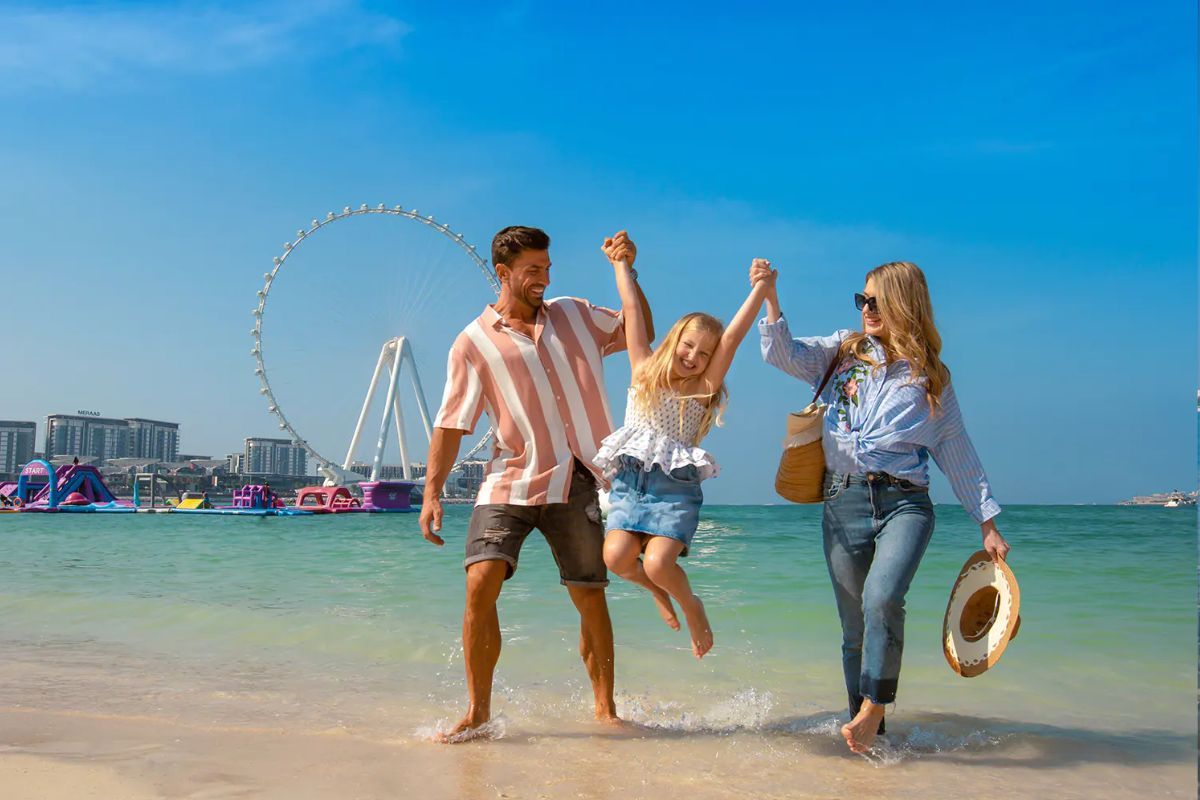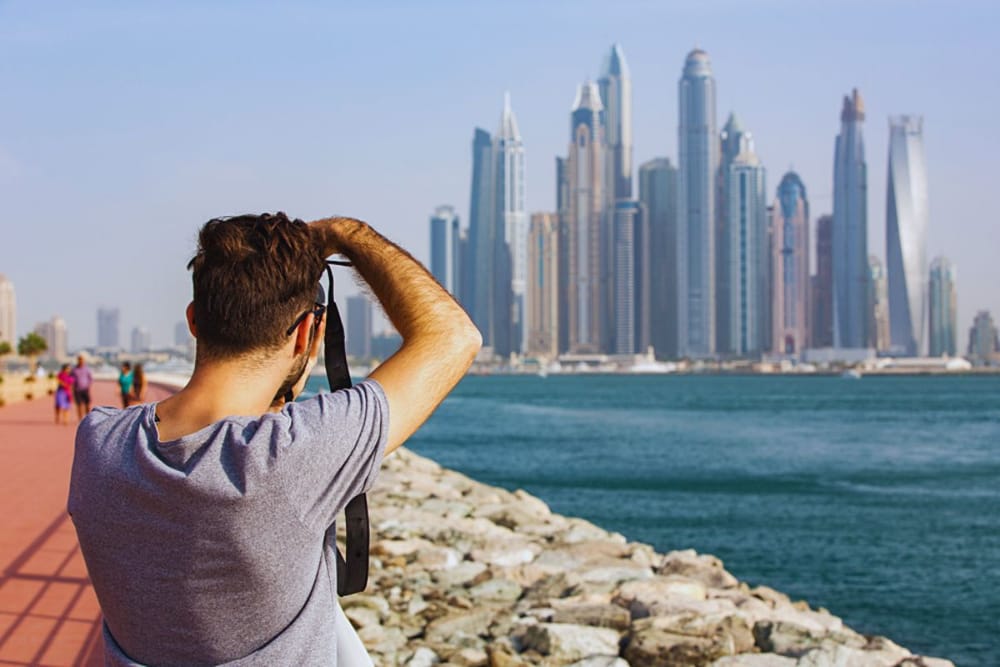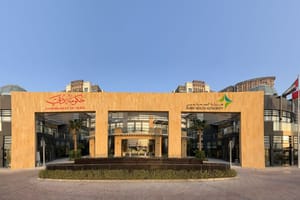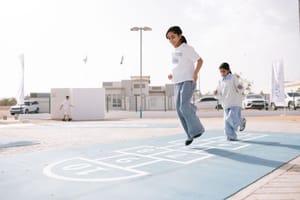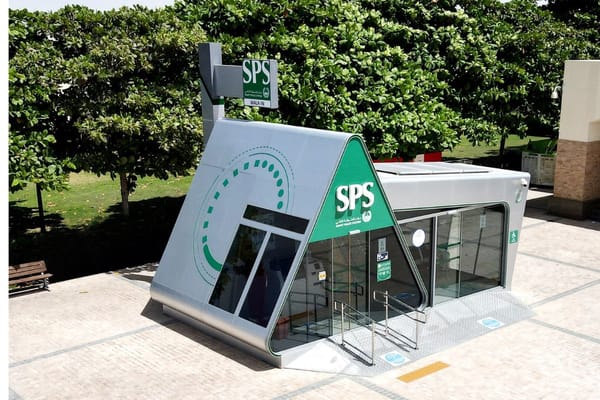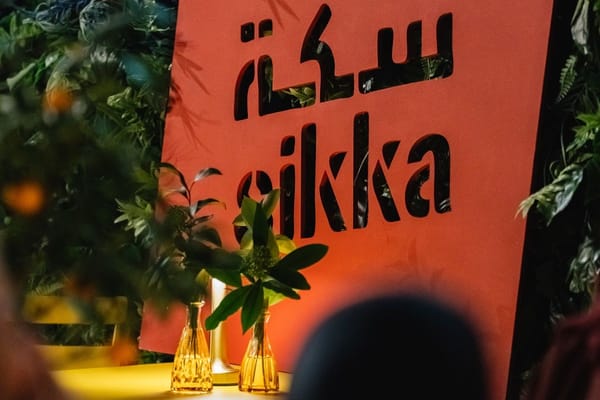Photography in the United Arab Emirates (UAE) is a common practice for visitors eager to capture the country's captivating sights and architectural wonders. However, it's essential to understand and adhere to the local photography rules to ensure a respectful and trouble-free experience. In popular tourist destinations like Dubai and Abu Dhabi, specific guidelines govern photography to respect privacy and cultural sensitivities.
While capturing photographs with smartphones is generally acceptable in public places, using professional cameras may pose challenges. Violating photography rules, especially in private areas, could result in legal consequences, including arrest, as it may be considered an invasion of privacy.
Despite these regulations, there are numerous breathtaking locations in the UAE where photography is permitted and encouraged. Iconic landmarks such as the Burj Khalifa, Palace Downtown, and Atlantis, the Palm, are open to photography, allowing visitors to document their experiences without worry.
Additionally, attractions like the Aquarium and the Miracle Garden offer picturesque settings for photography enthusiasts. By familiarizing themselves with local photography laws and respecting cultural norms, visitors can enjoy capturing memorable moments while exploring the beauty of the UAE.
The importance of adhering to local regulations and honoring cultural norms when taking memorable photographs
Understanding and observing local regulations and cultural nuances is essential when capturing lasting images. This approach guarantees that photographers act respectfully and responsibly, honoring the traditions and practices of the communities they visit. By adhering to these guidelines, photographers demonstrate cultural sensitivity, fostering positive interactions and safeguarding the authenticity of the places they explore.
Respect for Local Customs and Traditions

The UAE's cultural legacy is profound and diverse. Photographers should be mindful of this richness and approach photography with respect. Key points include:
- Always seek explicit consent before photographing individuals, particularly women, and religious sites.
- Refrain from capturing images of sensitive locations like military bases, vital infrastructure, and government buildings without explicit permission.
Respect for Privacy and Security
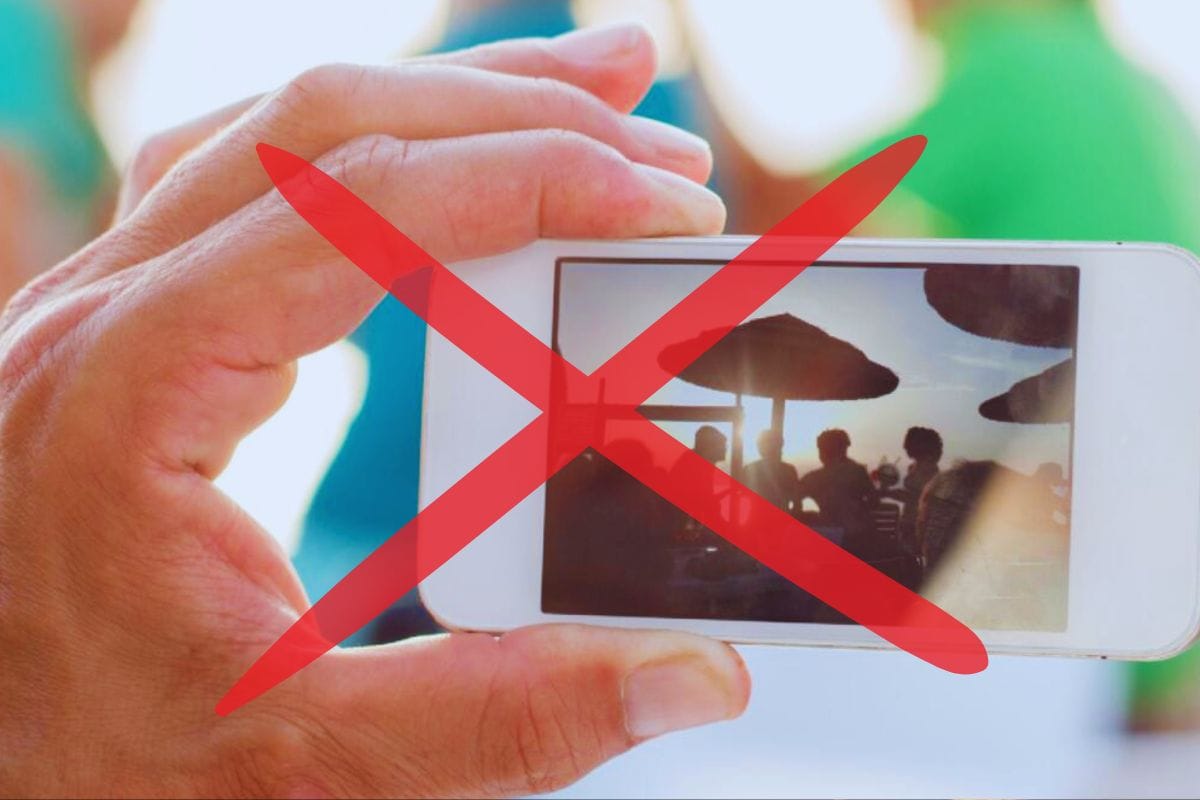
The privacy and security concerns in the UAE necessitate careful consideration when taking photographs. Important guidelines are:
- Avoid photographing individuals without their consent. This is particularly important in residential areas or within private establishments.
- Always ask for permission before taking photos in private spaces to avoid infringing on personal privacy.
- Exercise caution and be aware of restrictions when photographing in critical areas such as airports and transit hubs, where photography might be limited or prohibited for security reasons.
Navigating Commercial Photography Requirements
For those planning to engage in commercial photography within the UAE, securing the appropriate permits and licenses from the relevant authorities is crucial. This step is essential if you intend to use photographs for business purposes, such as sales or promotional activities. Engaging in commercial photography without the necessary authorization can lead to legal issues.
Guidelines for Social Media and Photo Sharing

When sharing photographs on social media or other online platforms, it's important to remain sensitive to local cultural norms and privacy concerns. Always obtain consent before posting images of individuals, particularly if they are identifiable, to ensure respect for their privacy. Additionally, exercise discretion in what you share, ensuring it aligns with local legal standards and cultural sensitivities.
Legal Obligations for Commercial or Professional Photography in the UAE

In the UAE, engaging in professional or commercial photography might necessitate specific permits and licenses, with the requirements varying based on the nature and location of the photography project.
Consulting with the National Media Council (NMC) or relevant local authorities is recommended to acquire detailed information on the legal prerequisites. This step ensures that photographers conducting commercial or professional ventures do so within the legal framework, avoiding legal complications.
Photography Activities That Need Authorization
A range of photography endeavors in the UAE, including but not limited to fashion shoots, commercial advertisements, documentary filming, and drone photography, may require official authorization.
Photography in certain areas, such as restricted zones, cultural landmarks, and public spaces, might also need permits to ensure compliance with UAE regulations. Engaging with the NMC or equivalent bodies is essential for understanding specific permit needs for different photography activities.
Types of Photography Permits in the UAE:
- Commercial Photography Permits: Essential for professional photographers undertaking work for commercial uses, including advertisements, films, television productions, and magazine shoots.
- Recreational Photography Permits: Necessary for individuals engaged in personal or non-commercial photography activities, such as wedding photography, vacation snapshots, and private photo sessions.
Documentation and Fees for Photography Permit Acquisition:
Securing a photography permit in the UAE requires the submission of certain documents alongside a fee payment. The requisite documentation typically includes:
- An official letter from the requesting party
- Fill out the photography application form (aerial / ground) + data form
- Photocopy of the photo crew’s passport, ID photo with visa photos.
- In the event that there is an implementing agency, a letter of authorization between the two parties must be brought.
- If there is a text, it must be attached to the application (the text is approved by the Media Content Follow-up Department)
- The fee for a photography permit in Dubai is determined by the permit's nature and the shoot's location.
Procedure for Applying for a Photography Permit
The application is submitted electronically.
- Fill out the form approved by the Ministry of Interior for ground photography from the requesting party or its representative.
- Attach the data form electronically.
- Check the attachments and conditions to be met in the photocopy application.
- Address the competent authorities (for approval or not) and receive the response.
- In the event that the competent authorities do not agree, the response will be made electronically.
- In the event of approval, the fees are paid and the approval is issued electronically.
Restrictions on Photography in Certain Locations and Cultural Sites
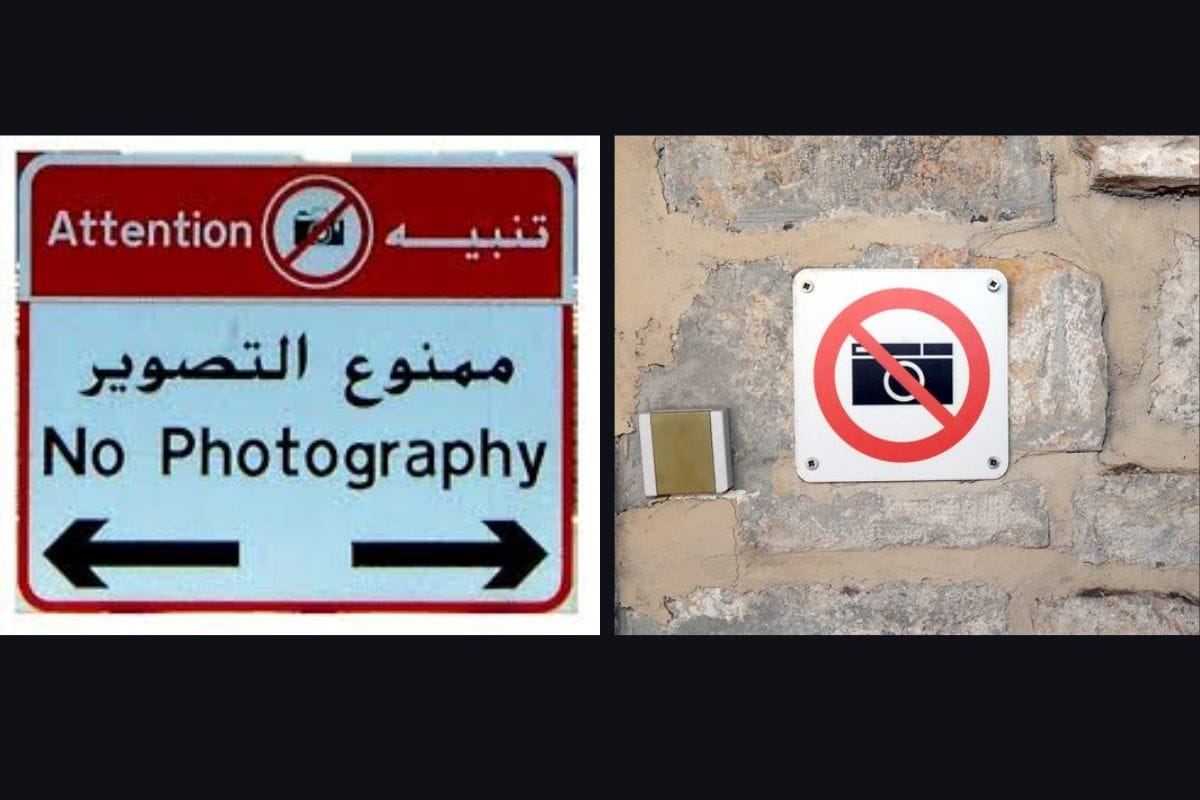
The UAE designates several areas and cultural sites where photography is either restricted or outright banned. This includes but is not limited to, government facilities, military areas, airports, and critical infrastructure.
Places of worship, such as mosques, may also impose restrictions or bans on photography due to their sacred status. Moreover, it is important to practice discretion and seek prior consent before photographing individuals, particularly women, and private properties.
By recognizing and adhering to these restrictions, the UAE promotes responsible and respectful photography practices, aligning with both local legislation and cultural expectations.
Drone Photography
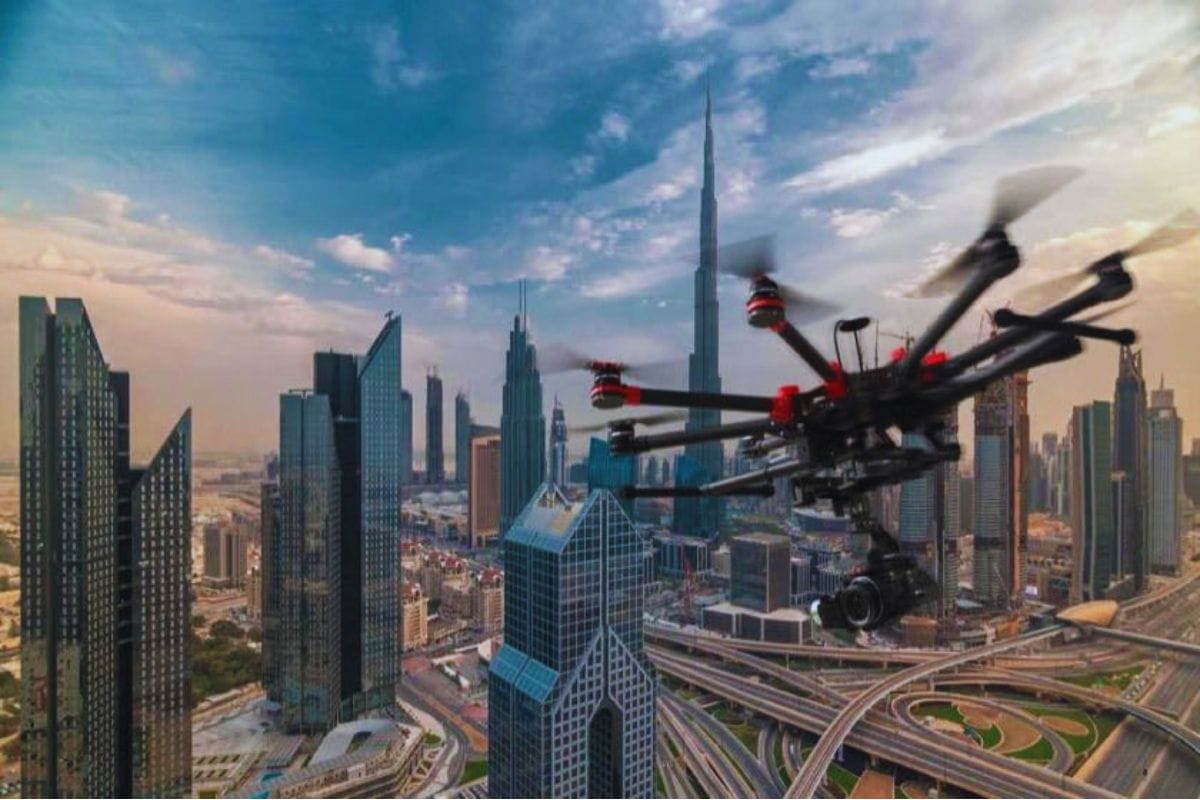
Drone photography in the UAE is subject to specific regulations to ensure safety, privacy, and security. Understanding and adhering to these rules is essential for anyone looking to capture aerial images using drones. Here are the key regulations:
Registration and Licensing
Drone Registration: All drones must be registered with the General Civil Aviation Authority (GCAA) or the Dubai Civil Aviation Authority (DCAA) before operation in the UAE.
- Pilot Licensing: Drone pilots may need to obtain a license or permit to fly, especially for commercial drone operations.
No-Fly Zones and Restricted Areas
- Restricted Airspace: Flying drones is prohibited in certain areas, especially near airports, military bases, and other sensitive locations. It's crucial to check the latest no-fly zone maps provided by the GCAA or DCAA.
- Privacy Concerns: Drones should not be used to photograph or film individuals without their consent, especially in residential areas where privacy expectations are high.
Operational Restrictions
- Height and Distance Limits: There are restrictions on how high and how far from the operator a drone can fly. These limits can vary depending on the area and the purpose of the drone flight.
- Visibility: Drones must be flown within the visual line of sight of the operator and only during daylight hours unless special permission has been granted.
Insurance and Liability
- Insurance: Operators conducting commercial drone photography may be required to have liability insurance to cover any potential damage or injuries caused by their drone operations.
Application for Drone Photography Permits
- Permit Requirement: For specific projects, particularly those involving commercial photography, a permit from the relevant authorities might be necessary. This includes approval from the GCAA or DCAA and potentially other local authorities, depending on the location of the shoot.
- Application Process: The process typically involves submitting detailed plans of the proposed drone operations, including locations, flight paths, and purposes of the photography.
Exception to the law for sharing pictures in the UAE
- Recognized media entities may share images if they serve the public interest, with ethical considerations in mind.
- Sharing images for security, law enforcement, or legal proceedings is permitted, subject to regulation and official oversight.
- Exceptions to sharing photographs without consent are narrowly defined and should be approached cautiously.
- Prior consent is the safest practice for sharing photographs in the UAE, reflecting the country's strong emphasis on privacy and individual rights.
- Explicit permissions are essential due to the legal framework prioritizing individual privacy and rights.
Photography Fines in the UAE
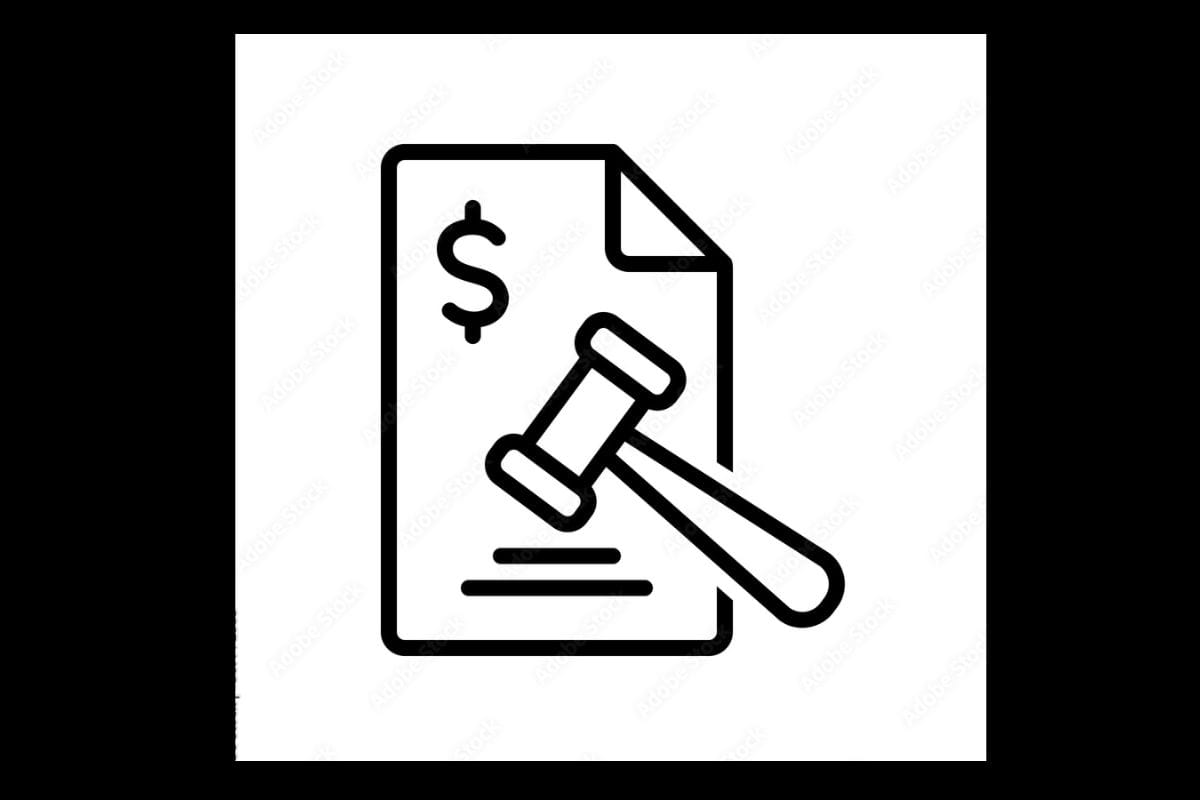
In the UAE, violating public photography laws incurs significant penalties.
- Capturing and sharing someone's image without their permission can lead to a minimum of six months in jail and a fine ranging from AED 150,000 to AED 500,000, or either penalty may be applied independently.
- For unauthorized photography at semi-governmental locations, fines vary from AED 8,000 to AED 13,000 for a half-day session, and between AED 15,000 to AED 25,000 for a full 24-hour period.
- Unauthorized photography at government facilities results in a fine of AED 25,000 for one day.
Frequently Asked Questions (FAQs)
Can I fly a drone for photography in the UAE without a permit?
- Flying a drone for photography in the UAE requires registration and, in many cases, a specific permit, especially for commercial use or in restricted areas. Always check current regulations before flying a drone.
How can tourists share their travel photos from the UAE on social media?
- Tourists can share their travel photos on social media with respect to privacy laws and cultural sensitivities. Ensure not to include identifiable individuals without their consent and avoid restricted locations.
Is street photography allowed in the UAE?
- Street photography is permissible with respect to individuals' privacy. It's advisable to focus on scenes that do not single out people without their consent. Be particularly mindful of photographing government buildings, security personnel, and infrastructure.
What are the consequences of photographing restricted areas?
- Photographing restricted areas, like government facilities or military bases, can lead to legal action, including fines and possible detention. Always respect no-photography signs and areas marked as sensitive.
Do I need permission to photograph cultural events or festivals?
- For public cultural events or festivals, photography is generally allowed. However, it's respectful and sometimes required to seek permission for photography that involves close-up shots of participants or performers.
Also Read:


